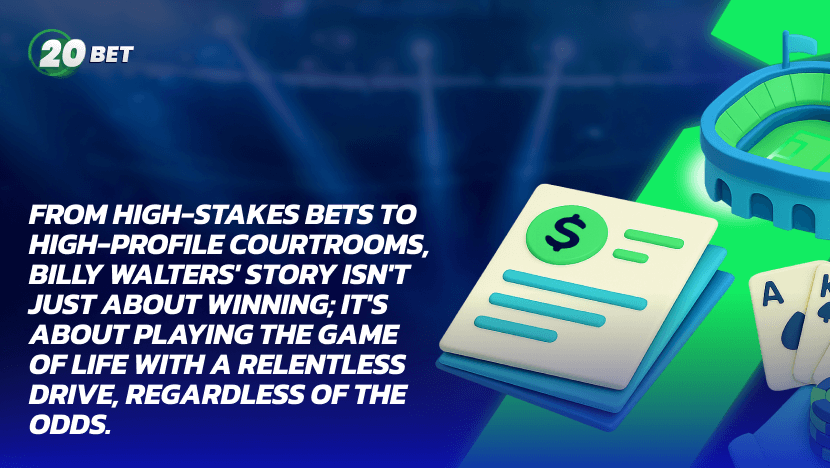BDP Engbu Insights
Your go-to source for the latest news and insights.
Inside the Mind of a Gambler: High Stakes Betting Insights Revealed
Unlock the secrets of high-stakes betting! Dive into the psyche of gamblers and discover winning strategies in our exclusive insights.
Understanding Probability: The Science Behind High Stakes Gambling
Understanding probability is essential for anyone looking to delve into the world of high stakes gambling. At its core, probability quantifies the likelihood of a specific event occurring, which is crucial in games like poker, blackjack, and sports betting. For instance, in poker, players must evaluate their chances of hitting a winning hand based on their cards and those on the table. This analytical approach not only enhances decision-making but also helps gamblers manage their bankroll effectively. Through mastering the fundamentals of probability, players can gain a competitive edge, making informed choices rather than relying solely on luck.
In the realm of high stakes gambling, probability can be broken down into several key concepts:
- Independent Events: Events that do not affect each other's outcomes, such as rolling a die.
- Dependent Events: Outcomes that rely on previous events, like drawing cards from a deck without replacement.
- Odds versus Probability: Understanding the difference between odds (the ratio of winning to losing) and probability (the likelihood of winning) is vital for making informed bets.

Counter-Strike is a popular team-based first-person shooter game that has captivated players since its inception. Its gameplay revolves around two teams, terrorists and counter-terrorists, competing to complete objectives or eliminate each other. For players looking to enhance their gaming experience, don’t forget to check out the duelbits promo code which can provide some great in-game benefits.
What Drives a Gambler's Decision-Making Process in High-Stress Situations?
The decision-making process of a gambler in high-stress situations is often influenced by a combination of psychological, emotional, and environmental factors. Cognitive biases play a significant role; for instance, the gambler's fallacy may lead individuals to believe that past outcomes will influence future results, prompting them to make irrational bets. Moreover, the pressure of potential loss can trigger strong emotional responses, resulting in what psychologists term loss aversion. In these moments, gamblers may prioritize immediate gratification over long-term consequences, opting to chase losses rather than assessing their odds rationally.
In addition to cognitive biases, the surrounding atmosphere can also impact a gambler's choices. Many high-stakes environments are designed to be immersive and stimulating, incorporating elements such as flashing lights and loud sounds that can heighten emotional responses. Social dynamics also come into play; the presence of other gamblers or onlookers can generate a sense of competition or camaraderie, influencing decisions in ways that might not occur in solitude. Understanding these aspects of the decision-making process can help illuminate why gamblers often act against their best interests, especially in high-stress situations.
The Psychology of Luck: How Gamblers Perceive Risk and Reward
The psychology of luck plays a pivotal role in how gamblers perceive both risk and reward. Many players enter casinos or engage in sports betting imbued with a sense of fate, leading them to believe that luck is a commodity they can control or influence. This perception can be traced back to cognitive biases, such as the illusion of control, where individuals overestimate their ability to affect outcomes in games of chance. They might adopt rituals or superstitions, convinced that certain actions can sway luck in their favor, while simultaneously underestimating the odds that govern these games.
Furthermore, the thrill of gambling is often fueled by the dopamine hit experienced after a win, reinforcing the gambler's belief in their own good fortune. This cycle can create a positive feedback loop where small wins are magnified in importance, further skewing their understanding of the actual probabilities involved. As a result, the perception of risk becomes distorted; gamblers may feel invincible or develop an overconfidence in their choices, which can lead to reckless betting behavior and significant losses over time. Understanding these psychological components is crucial for anyone engaged in gambling, whether for entertainment or as a potential career.